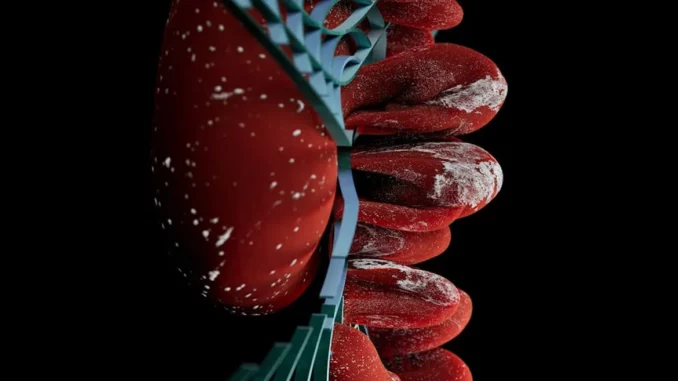
In the heart of Chicago, a city where innovation seamlessly intertwines with tradition, I had the distinguished opportunity to converse with Samantha Lewis, a fervent advocate for health technology and innovation. As a consultant for burgeoning health tech enterprises, Samantha has witnessed firsthand the transformative capabilities of technology in the healthcare sector. Our meeting took place amidst the vibrant atmosphere of the American Heart Association’s Scientific Sessions, where anticipation for the 2024 Health Tech Competition was palpable.
“The atmosphere here is electric,” Samantha remarked, her eyes gleaming with excitement. “The American Heart Association’s Health Tech Competition serves as a beacon for start-ups aspiring to revolutionise cardiovascular health.” This year’s competition features five visionary finalists, each poised to significantly impact heart health on a global scale. As Samantha recounted her interactions with these trailblazers, her insights painted a vivid picture of ingenuity and ambition.
Our discussion began with Flow Medical, a local favourite from Chicago. “Flow Medical is addressing one of the most critical issues in cardiac care—hypertension,” Samantha explained. Their innovative device offers real-time blood pressure monitoring, providing patients and physicians with actionable insights. “What distinguishes Flow Medical,” Samantha noted, “is their unwavering commitment to scientific rigour. Their device transcends mere numbers; it delves into understanding patterns and predicting risks.” This innovation stands as a testament to Flow Medical’s dedication to enhancing patient care through technology.
From Chicago, our conversation shifted to San Mateo, California, home to Heka Heart. Samantha described them as pioneers in personalised medicine. “Heka Heart is harnessing the power of AI to customise cardiovascular treatment plans for individual patients,” she elaborated. By integrating data from wearable devices, their platform crafts bespoke health strategies, potentially transforming heart disease management. “Their focus on personalisation could redefine patient engagement and outcomes,” Samantha thoughtfully added, highlighting the potential shift in patient-centric care.
Next, we explored the innovations of Powerful Medical, situated in the bustling metropolis of New York City. “They’ve developed an AI-driven diagnostic tool that aids clinicians in making quicker, more accurate decisions,” Samantha detailed. This tool is particularly focused on acute coronary syndromes, where time and precision are of the essence. “Their technology not only facilitates diagnosis but also predicts complications, which is groundbreaking for emergency care,” Samantha elaborated. This advancement underscores the critical role of AI in enhancing clinical decision-making.
From across the Canadian border in Vancouver, Proton Intelligence brings a fresh perspective with its data-driven methodology. “They utilise advanced analytics to identify and mitigate risk factors for cardiovascular disease,” Samantha explained. Their platform offers real-time insights into lifestyle changes, making prevention more accessible and effective. “Proton’s approach to integrating patient data into everyday decisions is innovative and empowering,” she remarked, underscoring the importance of data in preventive health measures.
Finally, we returned to Chicago to discuss Rheoxtech, Inc., another finalist making significant strides. “They’ve developed a novel therapy for heart failure that enhances the body’s natural repair mechanisms,” Samantha shared. Their therapy seeks to improve heart function through cellular regeneration, providing hope to millions affected by heart failure. “The potential impact of Rheoxtech’s solution is profound—it exemplifies what is possible when science meets imagination,” she mused, reflecting on the intersection of innovation and healing.
As we delved deeper into each start-up’s journey, Samantha highlighted the rigorous evaluation process these finalists undergo. “The judges scrutinise everything from the scientific validity and basis of the products to their potential impact on patient outcomes,” she said. The dual focus on business acumen and scientific innovation distinguishes this competition, ensuring only the most promising solutions rise to the top.
The excitement surrounding the finalists’ presentations was heightened by the prospect of the winner joining the Innovators’ Network. “This isn’t merely about winning a competition,” Samantha emphasised. “It’s about becoming part of a community dedicated to advancing health technology.” As our conversation drew to a close, Samantha reflected on the broader implications of the competition. “The work these start-ups are undertaking is crucial,” she stated with conviction. “Heart disease remains the leading cause of death worldwide. By fostering innovation, the American Heart Association is not just supporting businesses—they’re championing a future where heart health is improved for everyone.”
In the realm of health technology, innovation transcends mere jargon; it is a lifeline. The 2024 Health Tech Competition finalists epitomise the power of technology to transform lives, heralding a future where heart health is more accessible, personalised, and effective. As I departed from the vibrant milieu of the Scientific Sessions, I felt a profound sense of optimism about the path these innovators are forging—a path imbued with hope, health, and humanity.


Be the first to comment